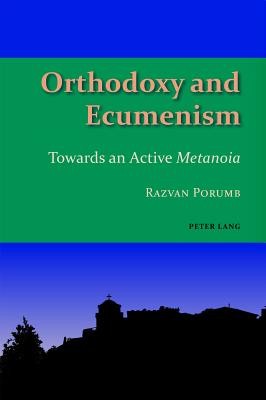
- We will send in 10–14 business days.
- Publisher: Peter Lang Ltd, International Academic Publishers
- ISBN-10: 1789971535
- ISBN-13: 9781789971538
- Format: 14.7 x 22.4 x 1.5 cm, softcover
- Language: English
- SAVE -10% with code: EXTRA
Orthodoxy and Ecumenism; Towards an Active Metanoia (e-book) (used book) | bookbook.eu
Reviews
Description
This book explores the relationship between the Orthodox tradition and the ecumenical practice of engagement with other Christian traditions. This relationship has for a long time been compromised by an underlying tension, as the Orthodox have chosen to participate in ecumenical encounters while - often at the same time - denouncing the ecumenical movement as deficient and illegitimate. The author perceives this relationship to be even more inconsistent since the core of Orthodoxy as professed by the Orthodox is precisely that of re-establishing the unity and catholicity of the Church of Christ. This vision informs Orthodox identity as essentially a Church of exploration, of engagement and dialogue, a Church committed to drive all other traditions, but also itself back to the «right» primordial faith. The book exposes the risk of Orthodox theology turning into an oppositional picture of Orthodoxy as necessarily opposed to a heterodox antipode, rather than being the continuous dynamic reality of the living Church of Christ. The author proposes the rediscovery of a set of paradigms in an ethos of humble, active metanoia that would enable a more plenary ecumenical operation for the Orthodox as well as a renewed awareness of their own spirituality.
EXTRA 10 % discount with code: EXTRA
The promotion ends in 18d.23:10:22
The discount code is valid when purchasing from 10 €. Discounts do not stack.
- Publisher: Peter Lang Ltd, International Academic Publishers
- ISBN-10: 1789971535
- ISBN-13: 9781789971538
- Format: 14.7 x 22.4 x 1.5 cm, softcover
- Language: English English
This book explores the relationship between the Orthodox tradition and the ecumenical practice of engagement with other Christian traditions. This relationship has for a long time been compromised by an underlying tension, as the Orthodox have chosen to participate in ecumenical encounters while - often at the same time - denouncing the ecumenical movement as deficient and illegitimate. The author perceives this relationship to be even more inconsistent since the core of Orthodoxy as professed by the Orthodox is precisely that of re-establishing the unity and catholicity of the Church of Christ. This vision informs Orthodox identity as essentially a Church of exploration, of engagement and dialogue, a Church committed to drive all other traditions, but also itself back to the «right» primordial faith. The book exposes the risk of Orthodox theology turning into an oppositional picture of Orthodoxy as necessarily opposed to a heterodox antipode, rather than being the continuous dynamic reality of the living Church of Christ. The author proposes the rediscovery of a set of paradigms in an ethos of humble, active metanoia that would enable a more plenary ecumenical operation for the Orthodox as well as a renewed awareness of their own spirituality.


Reviews